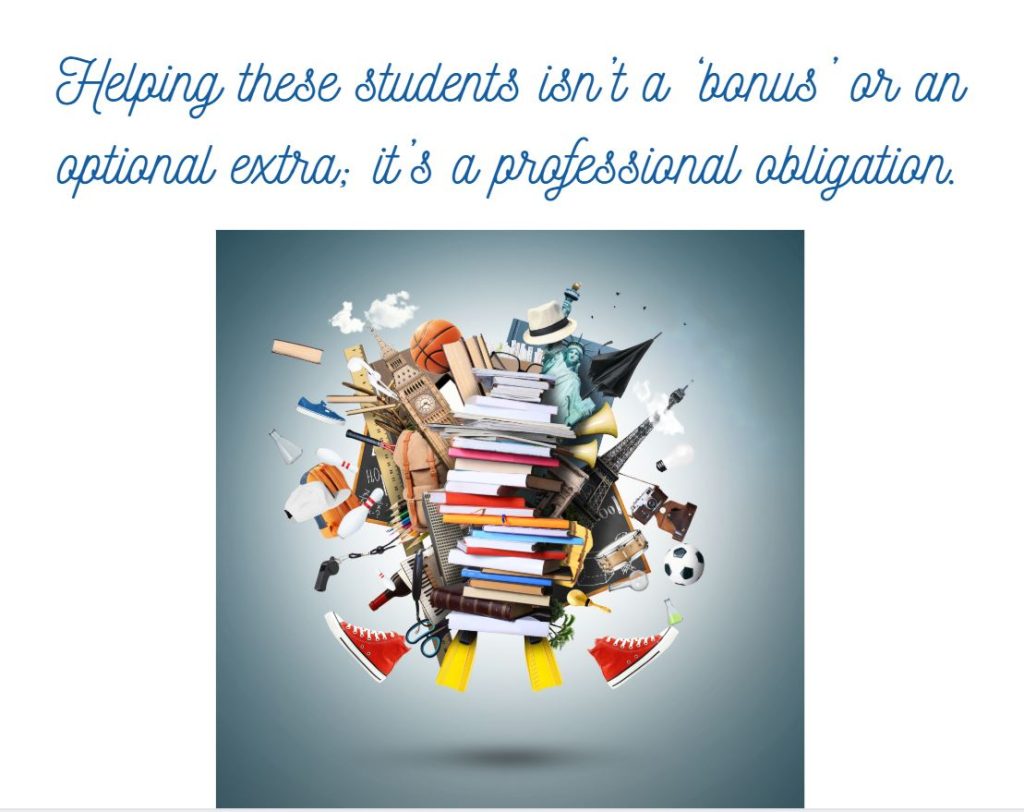Understanding Giftedness
GIFTEDNESS AND TALENT: WHAT DO THEY MEAN?
Aren’t all students gifted?
Some teachers find the terms ‘gifts’ and ‘talents’ a little disturbing. If we talk about ‘gifted’ students, does this mean some students aren’t gifted? Does this suggest some students are of less value than others? Aren’t all students gifted in some way?
Let’s look closer at the issues. Firstly, the issue of value. Identifying a student as gifted doesn’t mean they are of greater worth than other students, just as identifying a student as developmentally disabled or physically disabled doesn’t mean that they are of less worth.
Identifying a student as having learning characteristics that are significantly different from those of the majority of her classmates isn’t an issue of worth at all; it’s an issue of need. Gifted students and developmentally disabled students have different learning needs from most of their classmates and as teachers we have to respond to these needs.

Does everyone have a gift? Teachers who claim this may be confusing gifts with personal strengths.
Everyone has a personal strength, something we do better than we do other things. Our personal strength is the high point in our personal ability spectrum. Each of us also has a personal weakness, the relative low point. We don’t confuse personal weaknesses with disabilities. Equally, we shouldn’t confuse personal strengths with gifts.
The essence of giftedness is advanced development. Students who are gifted have the potential to perform at levels significantly beyond what we might expect for their age. A student can be intellectually or creatively gifted. He might be physically gifted or gifted in some area of his social- emotional development. But giftedness in any area means ability well beyond the average.
We would now like you to take the following moment to reflect on some of the myths about Giftedness.
